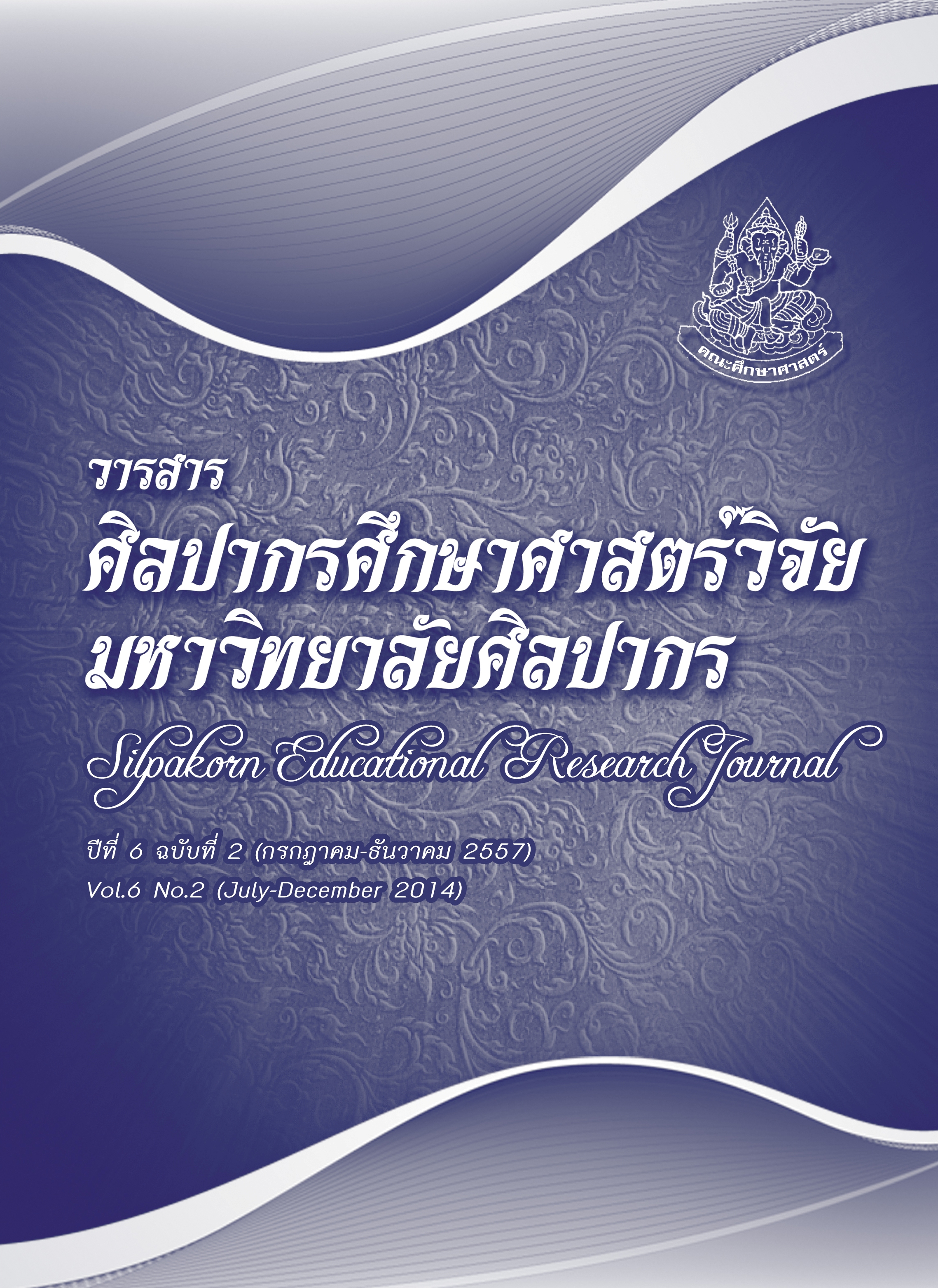การประเมินหลักสูตรการพยาบาลเฉพาะทาง สาขาการพยาบาลควบคุมการติดเชื้อ โรงเรียนพยาบาลรามาธิบดี
Main Article Content
Abstract
การวิจัยครั้งนี้มีวัตถุประสงค์เพื่อ 1) ประเมินผลปัจจัยเบื้องต้น (Input Evaluation) ของหลักสูตรการพยาบาลเฉพาะทางสาขาการพยาบาลควบคุมการติดเชื้อ 2) ประเมินผลกระบวนการ (Process Evaluation) และ 3) ประเมินผลผลผลิต (Product Evaluation) ประชากรที่ใช้ในการวิจัย ได้แก่ คณะกรรมการบริหารหลักสูตร อาจารย์ผู้สอน ผู้เข้าอบรม ผู้บังคับบัญชาของผู้สำเร็จการอบรม ผู้สำเร็จการอบรม จำนวนทั้งสิ้น 375 คน เครื่องมือที่ใช้ในการศึกษาวิจัยครั้งนี้เป็นแบบสอบถาม ผลการวิจัย พบว่า 1) ด้านปัจจัยเบื้องต้น (Input Evaluation) มีความเหมาะสมในภาพรวมอยู่ในระดับมากที่สุด 2) ด้านกระบวนการ (Process Evaluation) เป็นการประเมินความเหมาะสมของ การจัดการเรียน การสอน การวัดและการประเมินผล การบริหารหลักสูตร โดยภาพรวมมีความเหมาะสมอยู่ในระดับมาก และ 3) ด้านของผลผลิต (Product Evaluation) เป็นการประเมินความเหมาะสมของคุณลักษณะของผู้สำเร็จการอบรม ในด้านความรู้ ด้านทักษะ ด้านจริยธรรม โดยภาพรวมมีความเหมาะสมอยู่ในระดับมาก
In this thesis, the researcher conducts (1) an input evaluation of the
appropriateness of a specialized nursing program in the field of infection control nursing. The researcher also conducts (2) a process evaluation of the program under study in addition to (3) a product evaluation of the program under investigation. The research population consisted of 375 subjects taken from five groups as follows: the administrative committee of the specialized nursing program in the field of infection control nursing at Ramathibodi Nursing School; lecturers in the program under study; trainees who have not yet graduated from the program; superiors of those who have graduated from the program; and graduates from the program. The instrument of research used by the researcher to collect data was a five-rating scale questionnaire. Findings are as follows: 1) Regarding the factor of input, it was found that the program was appropriate in an overall picture at the highest level. When considered in each aspect, it was found that the aspects of program content; lecturers’ characteristics; instruction and study equipment; textbooks; and study location were appropriate at a high level. 2) In respect to the factor of process, evaluation showed that the organization of instruction and study; measurement and evaluation; and program administration were appropriate. Overall, the aspect of process was determined to be appropriate at a high level. 3) Concerning the factor of product, evaluation established that the characteristics of training graduates in the aspects of knowledge, skills, and ethics were appropriate. In an overall picture, it was found to be appropriate at a high level.

